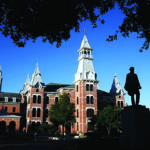The U.S. House of Representatives overwhelmingly voted to declare Myanmar’s military campaign against its Rohingya Muslim minority as “genocide.” Meanwhile, a representative from a human rights group focused on Myanmar’s northern region insists the plight of the Christian minority there has remained largely unnoticed.
By a 394-1 vote on Dec. 13, the House approved a resolution saying Myanmar’s policy of mass violence against the Rohingya Muslims constitutes genocide. The resolution also called for the release of two journalists imprisoned in Myanmar, also known as Burma.
Two days before the House vote, Secretary of State Michael Pompeo announced Myanmar as one of 10 nations listed as Countries of Particular Concern, a designation reserved for the world’s worst violators of religious freedom.
In a teleconference briefing for reporters, Sam Brownback, U.S. ambassador at large for international religious freedom, noted former Secretary of State Rex Tillerson had called the Burmese treatment of the Rohingya “ethnic cleansing.”
“The Kachin and Karen are also ones that are being persecuted in that nation, and all those together are reasons” Myanmar is named as a Country of Particular Concern, Brownback said.
The congressional vote followed a United Nations report several months ago that declared the Myanmar military carried out mass killings and gang rape with “genocidal intent.”
Churches destroyed, Christians traumatized
While acknowledging the “dramatic Rohingya crisis,” few recognize the Myanmar military—the Tatmadaw—“has been launching offenses against the Christian minority” in the northern state of Kachin since 2011, said M Tu Aung, general secretary of the Kachin Alliance, based in Washington, D.C.
“The army has destroyed hundreds of Christian churches deliberately and systematically in the region across Myanmar’s north and the northeast,” he said, noting about 1.5 million Christians live in the region.
“The army has also been using rape as a weapon of war and dehumanizing the Kachin ethnic Christian minority for years,” he added, saying some women and girls have been raped on church property. “Many are suffering trauma, and people’s lives are deteriorating.”
Sign up for our weekly edition and get all our headlines in your inbox on Thursdays
Since the civil war began in Myanmar seven years ago, more than 120,000 Kachin Christians and others have lived in camps for internally displaced people, he reported.
“There have been reports about civilians killed and buried in shallow graves,” he said. “There is concern from these people that the situation will get worse, because people who are already in the displaced camps are hearing bomb explosions and gunfire almost every day in their region.”
Need for international attention
Christians and other minorities are treated as “second-class citizens” in Myanmar and lack any effective way to raise their voices or seek justice, he asserted.
“Without the international community and the U.S. government’s help, minorities always fear to face continuous human rights violations,” he said.
Gum San Nsang, president of the Kachin Alliance, testified before the House Foreign Affairs Committee in July, reporting 180 churches desecrated, damaged or ruined during seven years of civil war in Kachin.
“The Burmese military bears responsibility for many atrocities across the country and, until it pays a price for its war crimes and crimes against humanity, it will be emboldened to continue,” he testified.
Violence in Shan state
Violence against Christians is not limited to the Kachin state or perpetrated exclusively by the Tatmadaw, other sources note. The Wa National Army—an insurgent group near Myanmar’s border with Thailand—has attacked churches and detained Baptist leaders in the Shan state, according to Baptist World Alliance representatives.
BWA General Secretary Elijah Brown learned from a Baptist pastor in Myanmar the Wa National Army had closed at least 50 Baptist churches and drafted 41 students at a Bible school into the army against their will.
“The families are not allowed to worship, to pray or to read the Bible,” Brown said the pastor told him. “They have been told they are no longer allowed to worship Jesus. The people are afraid, and they cannot really talk about what is happening. If the people are seen worshipping, even in their homes, then the Wa leaders are saying they will be put in jail for three years. This is a difficult time and difficult situation.”














We seek to connect God’s story and God’s people around the world. To learn more about God’s story, click here.
Send comments and feedback to Eric Black, our editor. For comments to be published, please specify “letter to the editor.” Maximum length for publication is 300 words.